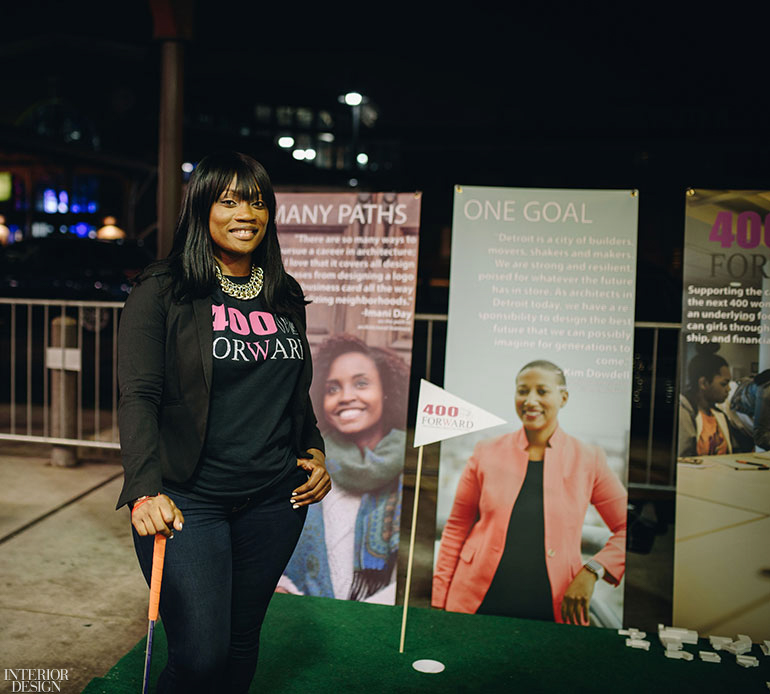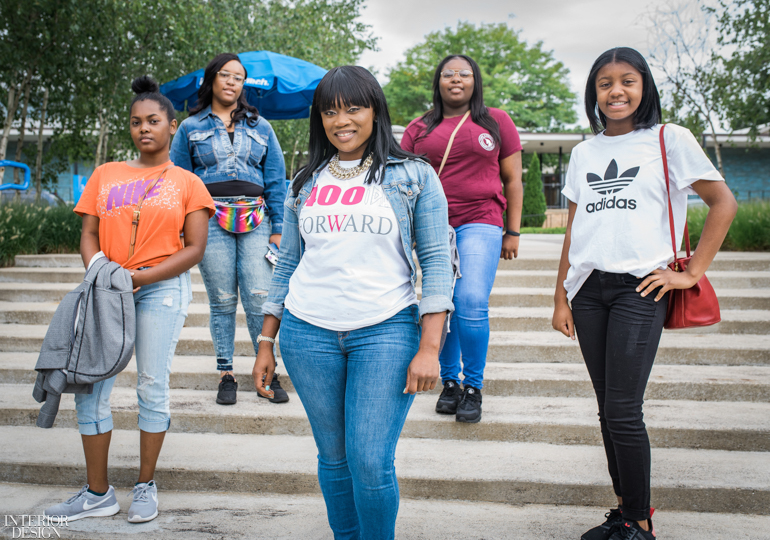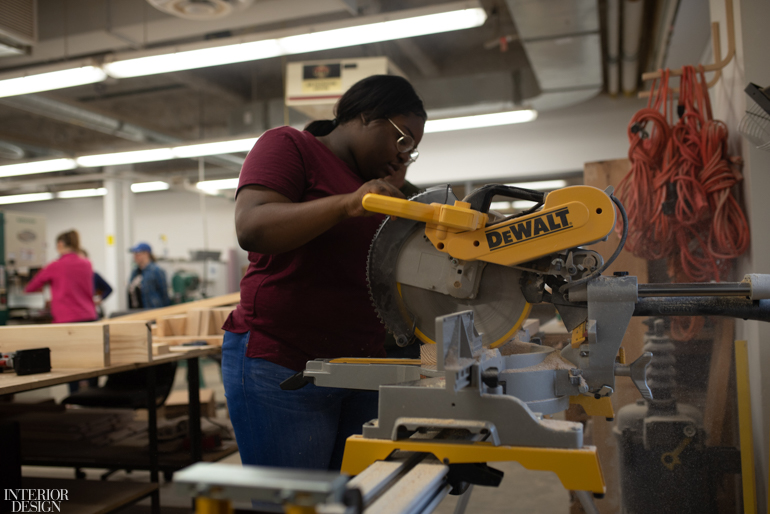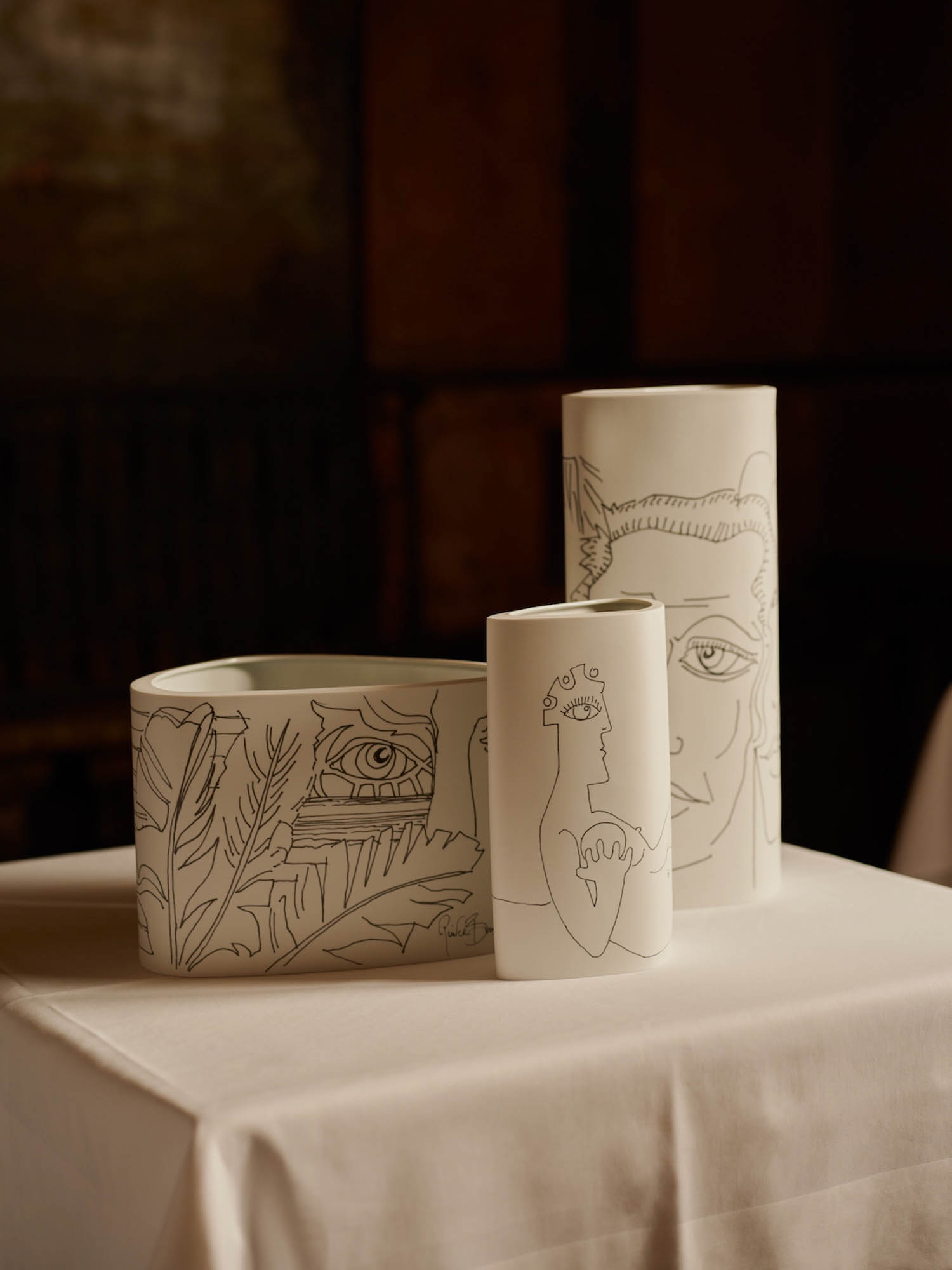Women Shaping the Future of Design: Meet Tiffany Brown, Founder of 400 Forward

“The current face of architecture is not an accurate reflection of what our cities look like,” says Detroit-based architectural project manager Tiffany Brown. In 2017 Brown’s proposal for a non-profit that would support the next generation of African American women pursuing careers as practicing architects won a grant from the John S. and James L. Knight foundation in its Knights Art Challenge.
Today, 400 Forward has formed partnerships with the American Institute of Architects, Microsoft, and the National Organization of Minority Architects—all in the interest of introducing school-age girls to the field of architecture, providing scholarships for college women studying architecture, and providing financial support for costly certification exams and study materials. Interior Design sat down with Brown, who works for national architecture and engineering firm SmithGroup, to discuss how she plans to empower the next generation of women architects.
Interior Design: Can you share with me what inspired your Knights Art Challenge submission of what would become 400 Forward?
Tiffany Brown: In 2017, the 400th living African American woman became a licensed architect. I don’t mean within the last 10 or 25 years, I mean 400 of all time. Out of over 100,000 licensed architects. At that time, I was already involved with several efforts to introduce kids to architecture through innovative programming, but that was a milestone that spoke to me.
We have heard of the .02% statistic before. This number has represented the presence of African American women in architecture for many years. The statistic has remained the same for African Americans in general for the past 50 years. The name 400 Forward represents my effort to influence the next generation of 400 women architects with an underlying focus on African American women.
Read more: These Four Women Are Shaping the Future of Design

ID: Did you have an ‘aha’ moment when you realized how dismal the representation statistics are for African-American women in the field of architecture?
TB: My ‘aha’ moment happened when I was working on a public housing redevelopment project in Detroit, and again on a new high school construction project in Detroit’s public school system. I found myself in meetings with people who did not seem to have the best interest of the users of these spaces in mind. They were people who did not, and likely would not, live in these public housing developments, or send their children to these schools. Just about all of them were people who didn’t look like me.
That was when I asked myself: Where is the representation? Who is taking the time to make people in Detroit’s community aware these professions are even options for them? Why are they not at this table making these decisions for their community? As a person with personal experience as a user of both these project types, now sitting at the table, I realized it should be me.
ID: How has the industry responded to you vocalizing the need for more diverse representation in architecture? Were you initially apprehensive about what that response would be?
TB: There are lots of professionals in the industry looking for ways to help change the face of architecture. Our peers see the need for the change and want to get involved. We should all agree the industry should reflect the diverse communities we are serving. The need will increase as time goes on…it’s inevitable. People are reaching out from across the country to support 400 Forward and want to take part in strengthening the diversity pipeline.
I don’t remember ever being apprehensive, because it’s an issue that cannot be denied. I still find myself speaking at conferences etc. about this issue and I am the only African American woman in the room. I don’t mind being the person to bring light to this topic. Some people in our industry are just not faced with it where they live, and are alarmed when they learn about it.

ID: What do you believe are the biggest obstacles to women of color entering the field of architecture? How do you hope 400 Forward can counter some of those obstacles for young African-American women in Detroit?
TB: I’ve found the most prominent obstacles to be the following issues: exposure, support, and financial barriers. Most urban cities do not have architects coming to schools to talk about architecture as a profession. I was a student in Detroit who had not been exposed to this as a profession until my senior year in high school. The cost of college, numerous expensive licensure exams, and the study material alone is a burden I am happy to assist with through 400 Forward.
Even after entering the field of architecture, African American women are paid far less than our male counterparts, even when we have more experience and more education. Studies have also found African American women are typically not promoted to leadership positions in firms.
These are all scenarios I have encountered, and through the 400 Forward initiative I use my story as a tool of empowerment.
400 Forward offers outreach, mentorship, and financial support services to African American women who need help with the numerous exams they must take to become licensed. 400 Forward recently won a $50,000 matching grant from the Knight Arts Challenge in Detroit, and has support from major entities such as Ford Mobility of Ford Motor Company.
ID: What’s next for 400 Forward? Are you looking to scale the initiative to other cities?
TB: 400 Forward has gained a lot of interest across the country over the last year. The initiative has been displayed nationally at several different advocacy exhibits. My plan is to expand the initiative into other cities through 400 Forward Ambassadors, people who are also advocates in changing the face of architecture and want to become mentors, sponsors, or can even assist in connecting students to professionals and resources to help them along their journey.
The profession as a whole can and should work together to counter these obstacles. Our communities have changed and will continue to evolve. Clients are demanding teams of all professions to be as diverse as our communities. Diverse teams are smarter, more creative, and better for any company’s bottom line. 400 Forward plans to create the talent needed to make that happen.



